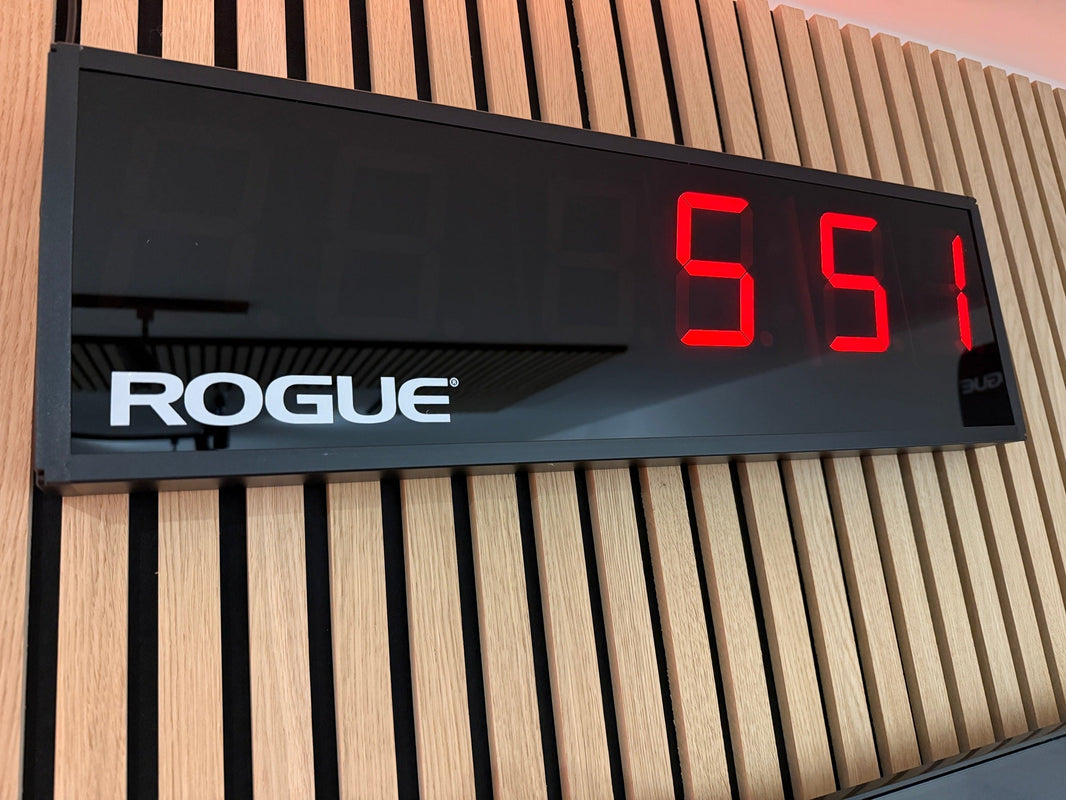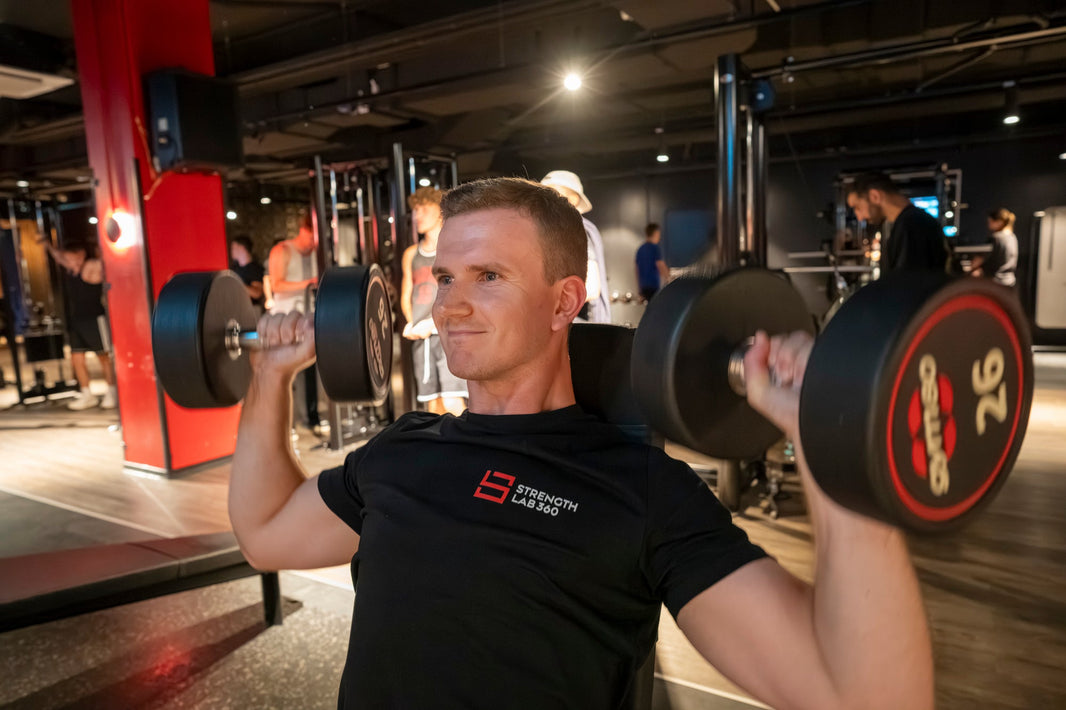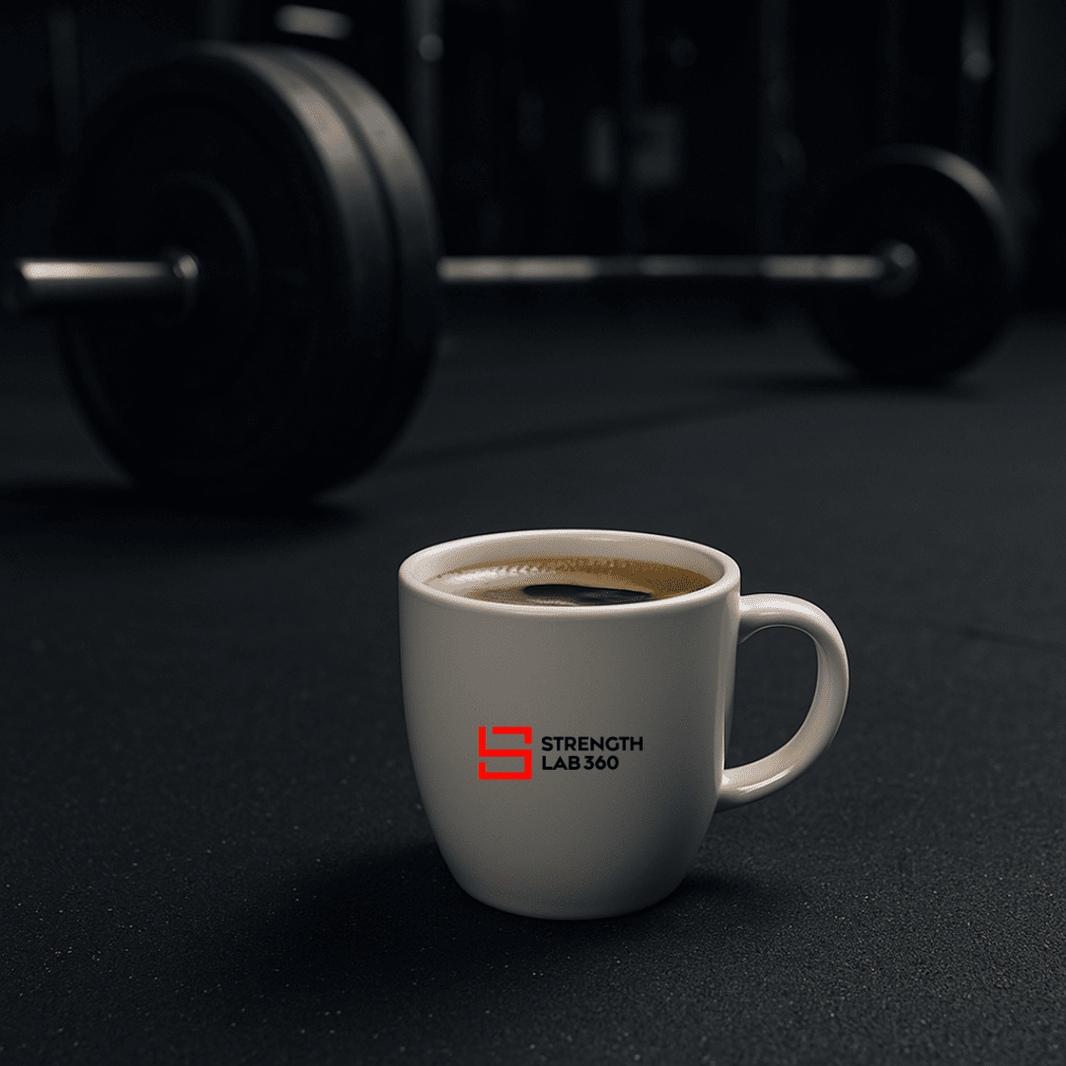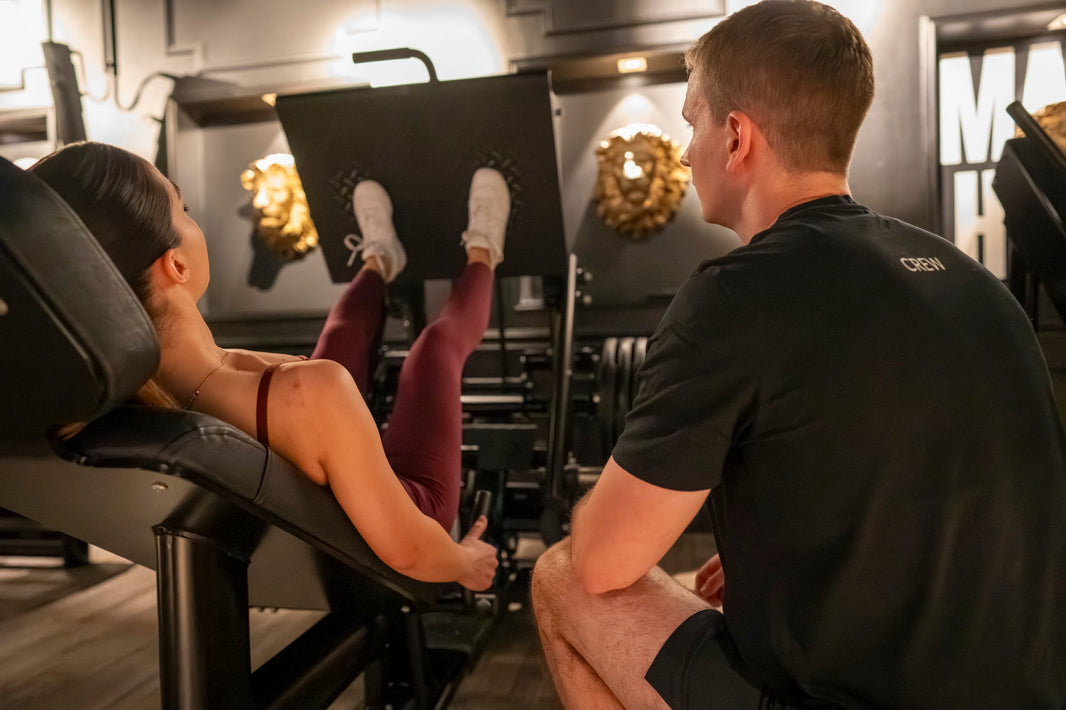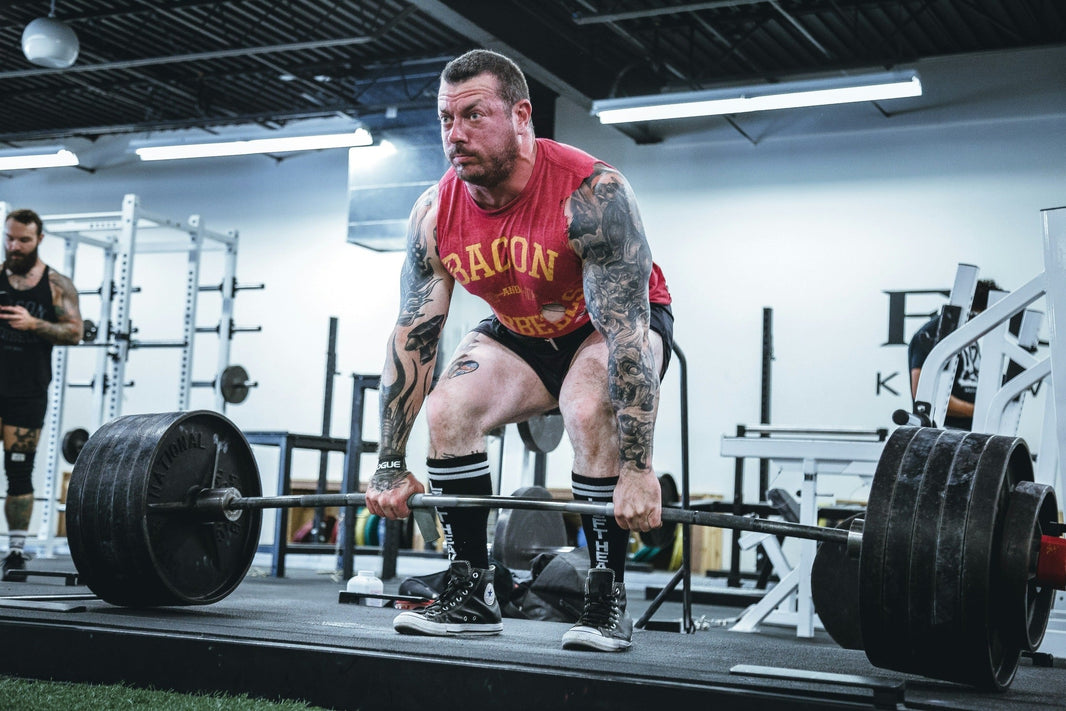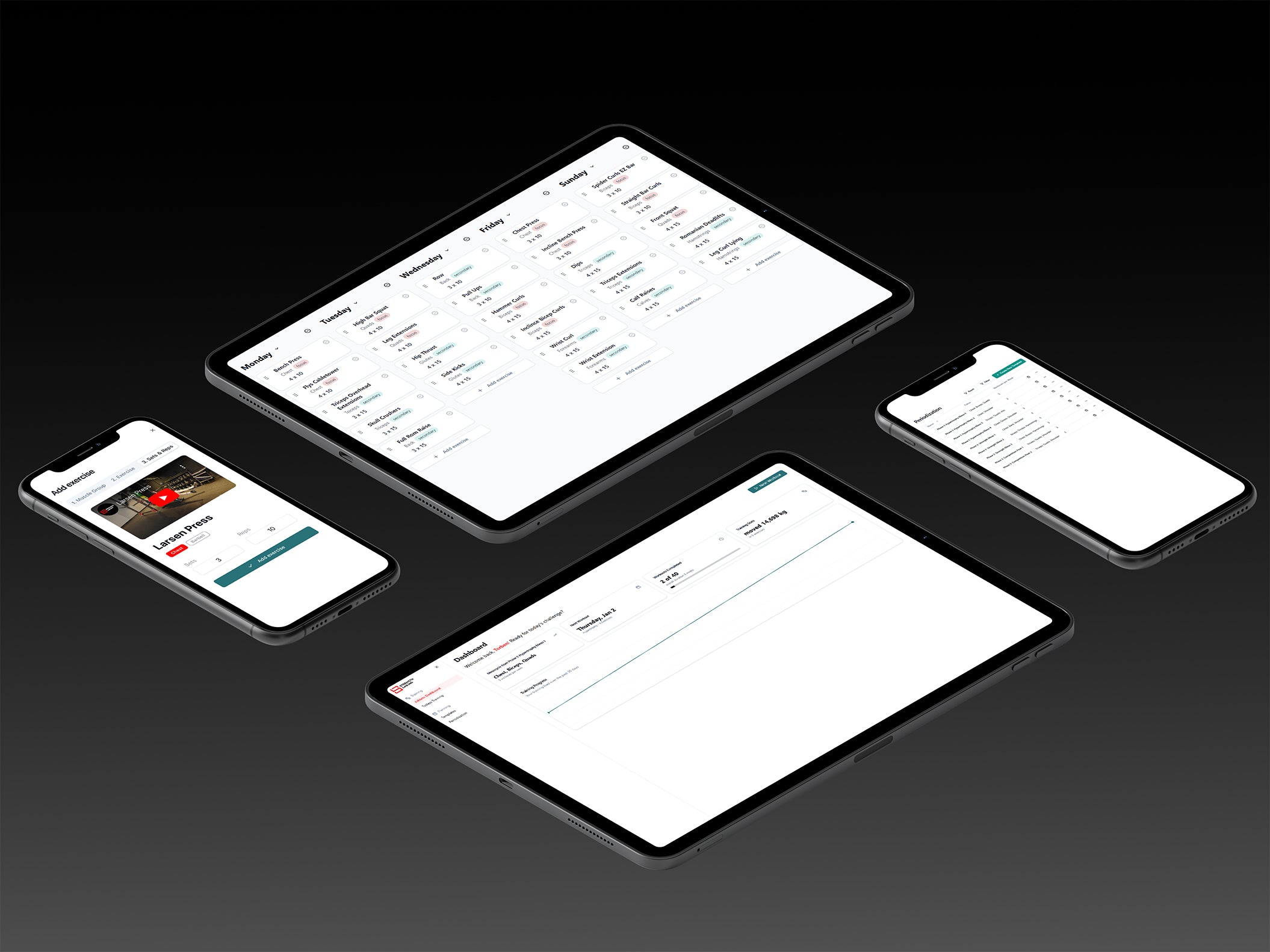In the realm of strength training, the right app can be the linchpin to achieving peak physical condition. This guide delves into the best apps for strength training of 2025, spotlighting those that excel in enhancing exercise regimens and bolstering endurance. Readers will uncover the pivotal features that set these apps apart, including real-time adjustments and comprehensive analytics. For those grappling with stagnant routines or plateaued progress, this article promises solutions. Engage with this content to navigate the landscape of strength training apps and visit StrengthLab360 to transform your fitness journey.
If you`re short on time, here are our top pics:
- Best overall: StrengthLab360 App
- Solid Choice: RP Hypertrophy App
- Basic Tracker with limited Features: Alpha Progression
- AI App with questionable Features: Dr. Muscle App
More in-depth Analysis for the Best Apps for Strength Training in 2025
Looking for the best app to match your specific training goals? We’ve conducted detailed analyses of top-rated apps that cater to specialized needs. Whether you’re focused on hypertrophy, powerlifting, or general strength training, our comparisons offer valuable insights into how leading apps stack up against each other.
Key Takeaways
- Strength training apps offer personalized, adaptable workouts for all fitness levels
- Real-time feedback and progress tracking in apps enhance motivation and training effectiveness
- Apps like StrengthLab360 provide comprehensive analytics for informed strength training decisions
- While apps offer extensive features, they complement rather than replace personal trainers
- Emerging technologies in fitness apps promise more immersive and personalized experiences
Understanding the Impact of Strength Training Apps in 2025
In the realm of strength training, the best weight lifting apps of 2025 stand as pivotal tools for athletes and fitness enthusiasts. These digital fitness solutions, available on iOS and other platforms, seamlessly integrate technology to enhance workouts through features like progressive overload tracking. The upcoming sections will delve into how personal trainers and individuals leverage these apps to optimize weight training, ensuring every session is data-driven and effective.
How Technology Enhances Strength Workouts
As the digital age advances, strength training enthusiasts are turning to the app store for solutions that merge health and fitness with technology. On both iOS and Android platforms, apps are redefining the way individuals approach barbell workouts and powerlifting routines. These applications offer real-time data analysis and personalized feedback, enabling users to make informed decisions about their training, thus enhancing the efficacy of each session.
Within the hypertrophy, bodybuilding and powerlifting community, the use of apps has become integral to tracking progress and planning workouts. By providing a platform for detailed recording of lifts, sets, and reps, these apps help athletes maintain a clear focus on progressive overload, a cornerstone of strength training. This technological integration not only streamlines the workout process but also empowers users with the knowledge to optimize their health and performance.
The Rise of Digital Fitness Solutions
In 2025, the landscape of digital fitness solutions has seen a significant surge, with strength training enthusiasts embracing apps that offer comprehensive guidance for exercises like squats and deadlifts. These platforms provide a wealth of information, enabling users to refine their technique with dumbbell workouts and other bodybuilding activities. The integration of such technology has proven indispensable for those seeking to enhance their strength training regimen, offering a level of precision and personalization previously unattainable.
StrengthLab360 exemplifies the evolution of digital fitness solutions, particularly for those dedicated to bodybuilding and powerlifting. The app’s real-time algorithmic adjustments take into account an athlete‘s performance in exercises such as the squat and deadlift, allowing for a tailored approach to training. This level of customization ensures that users are not only following best practices for their workouts but are also provided with actionable insights to continually progress toward their strength goals.
StrengthLab360: The Top Strength Training App of 2025
StrengthLab360 has revolutionized strength training in 2025, establishing itself as the premier app for athletes focused on muscle hypertrophy and powerlifting. What makes StrengthLab360 truly exceptional is its science-backed progressive overload algorithm, which adapts training variables in real-time. This cutting-edge technology ensures every workout is optimized for maximum effectiveness, helping athletes reach their goals faster and more efficiently.
The app caters to both bodybuilders aiming for hypertrophy and powerlifters seeking strength and performance gains. Its customized workout plans are tailored to individual fitness levels and objectives, offering a library of exercises and programs designed by industry experts. These programs are deeply rooted in the latest scientific principles, enabling users to target specific muscle groups or improve overall strength with precision.
StrengthLab360 takes training to the next level with its real-time progression system. By analyzing performance metrics during and after workouts, the app delivers actionable insights and adjusts plans dynamically to prevent plateaus and ensure continuous progress. This real-time adaptability is complemented by an advanced analytics dashboard, which provides a detailed view of training trends, volume, intensity, and recovery—empowering users to make data-driven decisions about their regimen.
Another standout feature is the optional real coach integration, which allows users to connect with certified coaches for personalized feedback, program adjustments, and video analysis. This unique blend of AI-driven guidance and human expertise ensures an unparalleled training experience, giving athletes the support they need to excel.
StrengthLab360 also fosters motivation through its community features, enabling users to connect with like-minded athletes, join challenges, and share achievements. These features promote accountability and create a supportive environment where success is shared and celebrated.
The app’s user-friendly interface ensures that navigating its robust features is seamless for both beginners and elite athletes. From expertly designed programs and real-time feedback to its vibrant community, StrengthLab360 provides an all-in-one platform that is as intuitive as it is powerful.
In 2025, StrengthLab360 leads the way in strength training by offering unparalleled functionality and results-driven innovation. Whether you’re building muscle, increasing strength, or refining your technique, StrengthLab360 delivers a comprehensive, science-backed approach that transforms every workout into a step toward peak performance and lasting results.
Key Features to Seek in Strength Training Apps
In the quest for optimal strength training, selecting the right app is crucial. The best apps of 2025 offer personalized workout programs, detailed progress tracking and analytics, comprehensive instructional guidance, and robust community support. These features enable users to wield data to enhance their experience, whether mastering kettlebell techniques or engaging in Strava-like competitive tracking. For those on a budget, these apps provide invaluable resources to maximize training efficiency. The subsequent sections will dissect these key components, illustrating their significance in the digital fitness landscape.
Personalized Workout Programs
For strength training aficionados, the allure of personalized workout programs lies in their ability to tailor routines to individual needs, whether one’s focus is on CrossFit, bench press mastery, or muscle development. The best strength training apps of 2025 understand this, offering user experiences that adapt to each athlete‘s unique fitness level and goals. These programs consider previous treadmill sessions, weightlifting achievements, and even recovery times to craft a regimen that evolves with the user.
When selecting a strength training app, users should look for features that allow them to customize their training plans, whether they’re preparing for a CrossFit competition or aiming to increase their bench press. The app’s ability to adjust to the user’s progress, providing challenging yet achievable workouts, is key to sustained muscle growth and overall fitness improvement:
- Dynamic workout creation based on user performance and feedback
- Integration of various exercises, from CrossFit routines to isolated bench press sessions
- Adaptive scheduling that accommodates the user’s lifestyle and recovery needs
These personalized programs not only enhance the user experience but also promote consistent progress, ensuring that each session on the treadmill or at the bench press contributes meaningfully to the user’s strength training journey.
Progress Tracking and Analytics
Progress tracking and analytics have become indispensable in the modern fitness app, particularly for disciplines like Olympic weightlifting and cycling, where incremental improvements are key. A top-tier strength training app in 2025 offers comprehensive monitoring of body composition changes and performance metrics across various equipment, providing users with a clear picture of their fitness journey. This data-driven approach allows for precise adjustments to training regimens, ensuring that each session contributes to the athlete‘s overarching goals.
For the fitness enthusiast, the ability to track progress in real-time serves as a powerful motivator. Whether refining technique in Olympic weightlifting or pushing endurance limits in cycling, the integration of robust analytics in a fitness app offers actionable insights. These insights enable users to identify strengths and areas for improvement, fostering a more informed and strategic approach to their training while ensuring that their investment in equipment and time yields the best possible outcomes.
Instructional Guidance and Tutorials
Instructional guidance and tutorials are essential components of the leading strength training apps in 2025, providing users with an automatic, interactive learning experience. These features offer in-depth knowledge on anatomy and nutrition, which are crucial for understanding the mechanics of exercises like rowing and the dietary requirements for muscle recovery and growth. Users can easily access a library of tutorials that demonstrate proper form and technique, ensuring their favorite workouts are both safe and effective.
The best apps go beyond mere exercise demonstrations, incorporating advanced tutorials that cater to the specific needs of each user. Whether it’s mastering the intricacies of rowing technique or optimizing a nutrition plan for strength gains, these apps provide actionable insights that are grounded in scientific research. The following list represents the story of a user’s journey through the instructional features of a top-tier strength training app:
- Discovering a comprehensive library of exercise tutorials that cover everything from basic anatomy to advanced lifting techniques.
- Engaging with personalized nutrition guides that align with their strength training goals and dietary preferences.
- Utilizing interactive features to track form and progress during rowing sessions, receiving instant feedback for improvement.
Community Support and Interaction
Community support and interaction are integral to the user experience in strength training apps, providing a platform for knowledge exchange and motivational feedback. A well-designed user interface facilitates this interaction, allowing athletes to share diet tips, training strategies, and personal milestones. This collaborative environment not only fosters a sense of camaraderie but also encourages users to remain accountable and engaged with their fitness goals.
The best strength training apps of 2025 recognize the importance of community in an athlete‘s journey. They offer features where users can receive feedback on their training regimen, discuss diet plans, and celebrate achievements. This level of support is crucial for maintaining motivation and can significantly impact an athlete‘s progress and adherence to their training program:
| Feature | Description | Benefit to Athlete |
|---|---|---|
| Community Forums | Spaces for users to discuss training and nutrition. | Enhances knowledge and provides a support network. |
| Progress Sharing | Allows users to post updates on their fitness journey. | Encourages accountability and celebrates milestones. |
| Feedback Systems | Enables experienced users to offer advice to others. | Improves training outcomes through peer insights. |
Top Strength Training Apps of 2025
In 2025, the landscape of strength training has been transformed by a suite of leading apps that cater to the diverse needs of weightlifting enthusiasts. These innovative platforms have become integral to building habits that support not only physical strength but also mental health. Users seeking personalized training experiences turn to these applications for their advanced tracking features and tailored programs. The best apps for strength training now offer a seamless blend of technology and science, incorporating elements like creatine response tracking to optimize training outcomes. The following sections will explore these user-favorite applications in detail, highlighting their unique capabilities in revolutionizing fitness routines.
Leading Apps Transforming Strength Training
In 2025, the integration of sophisticated algorithms into strength training apps has revolutionized the way athletes monitor their heart rate and muscle engagement during workouts. These apps, now essential tools in the smartphone arsenal of fitness enthusiasts, utilize real-time data to provide personalized recommendations, enhancing motivation and ensuring that each exercise is performed at peak efficiency. The user’s experience is further enriched by the app’s ability to adapt workout intensity based on heart rate zones, ensuring safety and maximizing gains.
StrengthLab360 stands out as a leader in this transformative era, offering a platform where the confluence of technology and fitness reaches new heights. Its proprietary algorithm not only adjusts workouts based on user performance but also provides insights into optimal training frequencies and recovery periods. This tool has become indispensable for athletes seeking to optimize their strength training, as it delivers a tailored experience that aligns with individual goals and physiological responses, all through the convenience of their smartphone.
Innovative Platforms for Weight Lifting
In 2025, the landscape of weight lifting has been transformed by innovative platforms that blend expert methodology with user-friendly interfaces. StrengthLab360, for instance, has redefined the training experience by offering a system that adapts to the nuanced needs of each user, akin to having a personal trainer in one’s pocket. This platform’s algorithmic precision and ease of use make it a standout choice for those seeking to elevate their lifting regimen.
These platforms have also integrated seamlessly with popular fitness trackers like Fitbit, allowing users to synchronize their cardiovascular data with strength training metrics for a holistic view of their health. The expertly designed interface of StrengthLab360 ensures that even those with a penchant for dance as a form of fitness can track and analyze their performance, making it a versatile tool for a diverse range of athletes.
User-Favorite Strength Training Applications
In the quest for muscle enhancement, the best workout apps for muscle gain have become invaluable for athletes. StrengthLab360, renowned for its integration of biomechanics, stands as a user favorite, offering tailored programs that adapt to the individual’s physiological responses. This best weight training app ensures that users can maximize their gains with scientifically designed workouts, making it a trusted companion for serious lifters.
For those seeking cost-effective solutions, free weight lifting apps have emerged as a boon, providing access to expert-designed workouts without the financial burden. These apps often include features such as detailed exercise libraries and progress tracking, empowering users to pursue their strength goals with confidence. The following list represents the journey of users who have found success with these applications:
- Exploring the extensive exercise databases to master new techniques and optimize form.
- Utilizing progress tracking to celebrate strength gains and adjust training as needed.
- Accessing community forums for support and sharing success stories with fellow fitness enthusiasts.
As the digital fitness landscape evolves, the weight training app market continues to cater to the needs of hypertrophy athletes. The best weight training apps not only provide structured workout plans but also offer insights into recovery and nutrition, all while fostering a supportive community environment. This holistic approach to strength training ensures that users have all the tools necessary for sustained muscle growth and peak performance.
Apps Offering Advanced Tracking Features
In 2025, the best free weight lifting app offers unparalleled tracking features, enabling users to meticulously monitor their strength training progress. These apps, including the best free weight training app options, provide real-time analytics on performance, allowing for immediate adjustments to training intensity and volume. This level of detail caters to the dedicated athlete‘s desire for precision and control over their fitness journey.
For women seeking tailored strength training solutions, the best strength training app for women integrates gender-specific metrics and wellness insights. These platforms consider unique physiological factors, offering a personalized approach that resonates with female athletes. Similarly, the best body weight workout app delivers comprehensive tracking for those focusing on calisthenics, ensuring users can effectively gauge their progress without the need for additional equipment.
Best Apps for Personalized Training
The quest for the best weight training app free of charge leads many to discover platforms that offer robust personalization without a hefty price tag. These best weightlifting apps free for download prioritize user-specific training regimens, adapting to individual strength levels and fitness goals. For women, the best weight training app for women and the best women’s strength training app provide tailored experiences that consider unique physiological needs, ensuring that each workout is as effective as it is empowering.
Discerning athletes seeking a weight training program app that delivers a customized approach find solace in applications that meticulously track progress and adapt in real-time. The best apps in this category understand the nuances of periodization and recovery, offering guidance that evolves with the user’s performance. This personalized touch not only enhances the training experience but also fosters a deeper connection between the athlete and their fitness journey, leading to sustained engagement and improved results.
Best Weight Lifting Apps for Different Fitness Levels
In 2025, the diversity of strength training apps caters to a spectrum of fitness levels, from novices to seasoned athletes. For beginners, apps offer foundational routines that incorporate yoga and pilates, easing users into the world of weightlifting. Intermediate lifters benefit from programs on Google Play and the App Store that build upon core strength and promote weight loss. Meanwhile, advanced athletes can access specialized Peloton-like training modules, pushing the boundaries of their capabilities. Each app is designed to progress users through their fitness journey, providing valuable insights and tailored experiences.
Apps for Beginners Starting Out
For beginners embarking on their strength training journey, the selection of an app that simplifies the process is crucial. The ideal app offers live streaming tutorials that guide users through foundational exercises, ensuring correct form and technique. It also integrates kinesiology principles to educate users on how their body moves, providing a deeper understanding that enhances their workouts and helps prevent injury.
Moreover, these apps often include features that assist with ancillary aspects of fitness, such as meal planning for optimal nutrition and advice on selecting the right sneakers for training. A beginner’s experience is further enriched by the inclusion of a virtual yoga mat space, allowing for flexibility training and recovery sessions, which are essential components of a well-rounded strength regimen.
Options for Intermediate Lifters
Intermediate lifters often seek strength training apps that bridge the gap between foundational skills and advanced techniques. These individuals require platforms that offer structured programs with incremental challenges, ensuring continuous improvement in strength and muscle development. StrengthLab360 caters to this demographic by providing periodized training plans that evolve with the lifter’s increasing capabilities, fostering measurable progress and preventing plateaus.
For those at an intermediate level, the integration of compound movements and nuanced accessory exercises is essential for balanced development. StrengthLab360 excels in this area, offering a diverse exercise library and detailed analytics to track improvements in key lifts such as the squat, bench press, and deadlift. The app’s real-time feedback and algorithmic adjustments guide lifters through their mesocycles, optimizing each session for peak performance:
- Periodized training plans that adapt to the lifter’s progress and goals.
- Comprehensive exercise library focusing on compound and accessory movements.
- Detailed analytics and real-time feedback to fine-tune training intensity and volume.
Advanced Programs for Experienced Athletes
For experienced athletes, advanced strength training apps like StrengthLab360 offer sophisticated programs that challenge even the most seasoned lifters. These platforms provide intricate periodization schedules and advanced analytics, enabling athletes to push past plateaus and continue making significant gains in strength and muscle mass.
StrengthLab360 stands out by offering experienced athletes the ability to customize mesocycles, integrating the app’s algorithmic insights to fine-tune their training. This level of personalization ensures that each workout is precisely calibrated to the athlete‘s current performance, fostering optimal growth and peak athletic performance.
Selecting the Right Strength Training App for Your Goals
Choosing the ideal strength training app in 2025 hinges on several critical considerations. Users must first identify personal fitness objectives, ensuring the app aligns with their specific goals. It is equally important to consider one’s training experience, as apps offer varying levels of complexity and support. Evaluating app features and benefits is essential for maximizing training outcomes, while budget and subscription considerations play a significant role in the decision-making process. The following sections will provide insights into these key areas, guiding users to make informed choices that support their strength training endeavors.
Identifying Personal Fitness Objectives
Embarking on the journey of strength training requires a clear definition of one’s fitness objectives. For individuals seeking to enhance their physical prowess, the selection of a strength training app should align with specific goals such as muscle hypertrophy, increased powerlifting totals, or improved athletic performance. A well-chosen app acts as a catalyst, propelling users towards their desired outcomes with structured programs and measurable progress indicators.
Understanding one’s current fitness level and desired milestones is crucial when navigating the plethora of strength training apps available in 2025. Whether the aim is to master the intricacies of Olympic lifts or to sculpt a bodybuilder’s physique, the right app provides personalized plans and tracks vital statistics, ensuring that every workout moves the user closer to their fitness aspirations:
| Objective | App Feature | Outcome |
|---|---|---|
| Muscle Hypertrophy | Customized hypertrophy-focused training modules | Targeted muscle growth and improved body composition |
| Strength Gains | Periodized strength programs with progressive overload | Increased lifting totals and power output |
| Endurance and Conditioning | Cardiovascular integration and endurance workouts | Enhanced athletic stamina and performance |
Considering Your Training Experience
When selecting a strength training app, one’s training experience should guide the decision. Novices may benefit from apps that offer foundational training modules and step-by-step instructional content, while more seasoned lifters might seek advanced features such as detailed analytics and customizable training cycles. It’s essential for the app to match the user’s skill level to provide appropriate challenges and prevent injury.
For the intermediate athlete, an app that bridges the gap between basic fitness and elite performance is key. These users require a platform that can scale with their evolving capabilities, offering progressive overload and periodization to ensure continuous improvement. The right app will recognize the user’s growing proficiency and adapt accordingly, providing a seamless transition from intermediate routines to more complex training regimens.
Evaluating App Features and Benefits
When scrutinizing the features and benefits of strength training apps, users should prioritize those that offer comprehensive analytics and personalized training plans. These elements are crucial for tailoring workouts to individual needs, ensuring that each session is as effective as possible. An app that provides detailed feedback on performance and adapts to the user’s evolving fitness level can significantly enhance the training experience, leading to better results and sustained motivation.
Moreover, the utility of a strength training app is amplified when it includes a robust support system, such as access to certified coaches or an active community forum. This support not only aids in the refinement of technique but also fosters a sense of accountability and encouragement. Users benefit greatly from an app that combines these features with a user-friendly interface, making it easier to navigate their strength training journey and achieve their fitness goals.
Budget and Subscription Considerations
When considering the best strength training app to meet one’s fitness goals, budgetary constraints are a significant factor. The market offers a range of options from free apps with basic functionality to premium services with advanced features and personalized coaching. Users must weigh the long-term value of subscription-based apps against their fitness aspirations, ensuring the investment aligns with their commitment to achieving desired results.
It is essential for users to scrutinize the cost-benefit ratio of potential app subscriptions, taking into account the depth of features such as personalized training plans, real-time analytics, and community support. A thorough evaluation helps users avoid unnecessary expenses while securing an app that provides the necessary tools to facilitate their strength training progress effectively and efficiently.
Maximizing Results With Strength Training Apps
To harness the full potential of strength training apps in 2025, users must focus on establishing consistent workout routines, utilizing app features effectively, and engaging with online fitness communities. These key strategies, explored in the following sections, are essential for maximizing results. By adhering to a structured regimen, leveraging the sophisticated tools provided by these apps, and connecting with fellow enthusiasts, athletes can significantly enhance their training outcomes. The insights offered here aim to empower users with practical methods to elevate their fitness journey through the strategic use of technology.
Establishing Consistent Workout Routines
Establishing a consistent workout routine is the cornerstone of success for strength training enthusiasts. The best strength training apps of 2025 facilitate this by offering personalized schedules that adapt to the user’s lifestyle, ensuring that workouts can be seamlessly integrated into daily life. By setting reminders and tracking workout frequency, these apps help users maintain the discipline necessary to achieve their fitness goals.
For athletes, consistency in training is not just about frequency but also about maintaining the quality of each session. Strength training apps provide structured workout plans that keep users engaged and progressing, with real-time feedback that encourages adherence to the prescribed intensity and volume. This approach ensures that every workout contributes optimally to the user’s strength and hypertrophy objectives.
Utilizing App Features Effectively
Effective utilization of app features is paramount for athletes seeking to enhance their strength training regimen. The StrengthLab360 app, for instance, offers real-time algorithmic adjustments that tailor each workout to the user’s current performance levels, ensuring optimal challenge and progression. By engaging with these dynamic features, users can ensure their training remains aligned with their evolving fitness goals, leading to more efficient and productive sessions.
Moreover, the comprehensive analytics dashboard provided by StrengthLab360 allows for meticulous tracking of performance trends, offering users a clear visualization of their progress. This empowers athletes to make data-informed decisions about their training, fine-tuning their approach based on detailed metrics such as strength scores and volume tracking. Such strategic use of app features can significantly amplify the effectiveness of each workout, propelling users towards their desired outcomes with precision.
Engaging With Online Fitness Communities
Engagement with online fitness communities through strength training apps offers a unique blend of camaraderie and competition that can significantly enhance an athlete‘s motivation and adherence to their regimen. StrengthLab360’s community features, for example, allow users to connect with peers, share progress, and receive encouragement, creating a supportive environment that fosters accountability and sustained effort towards fitness goals.
For the strength training enthusiast, the value of these digital communities cannot be overstated. They serve as a platform for exchanging training tips, celebrating personal records, and even engaging in friendly competition. Such interactions not only enrich the user’s training experience but also provide a sense of belonging and collective progress within the strength training realm.
Overcoming Common Challenges in Strength Training
Strength training in 2025 presents unique challenges that can hinder progress, such as maintaining motivation and discipline, ensuring proper form and technique, and adjusting workouts to avoid plateaus. The subsequent sections will address these hurdles, offering solutions through the lens of the best strength training apps. These apps provide structured guidance and support to help athletes overcome obstacles and continue advancing in their fitness journeys.
Maintaining Motivation and Discipline
Maintaining motivation and discipline in strength training can be challenging, but the right app can make a significant difference. StrengthLab360, for instance, offers personalized goal-setting and progress tracking that keeps athletes engaged and accountable. The app’s real-time feedback and dynamic adjustments provide a sense of accomplishment and direction, ensuring users stay committed to their fitness journey.
Discipline in strength training is further reinforced by the structured environment that apps like StrengthLab360 create. By delivering tailored workout plans and scheduling reminders, the app helps users establish a consistent routine. This consistency is crucial for long-term success and is a core feature of the app that athletes rely on to stay focused on their strength and hypertrophy goals.
Ensuring Proper Form and Technique
Ensuring proper form and technique is a cornerstone of effective strength training, and the latest apps provide innovative solutions to this challenge. StrengthLab360, for example, offers video feedback from certified coaches, allowing users to refine their movements and reduce the risk of injury. This feature is instrumental in helping athletes execute exercises with precision, leading to better performance and faster gains.
The integration of human-centered technique analysis within these apps serves as a virtual coach, guiding users through each movement. This level of detailed instruction is crucial for both novice and experienced lifters, as it ensures that workouts are not only effective but also safe. By prioritizing form and technique, StrengthLab360 empowers users to achieve their strength training goals while maintaining their physical well-being.
Adjusting Workouts to Avoid Plateaus
Plateaus in strength training can be a significant barrier to progress, but the right app can provide the necessary tools to overcome this challenge. StrengthLab360, for instance, employs a sophisticated algorithm that adjusts workouts in real time, ensuring that athletes continue to experience muscle hypertrophy and strength gains. This dynamic approach prevents stagnation by modifying training variables such as intensity, volume, and frequency, keeping the athlete‘s body adapting and improving.
For athletes dedicated to their craft, the frustration of hitting a plateau can be demoralizing. However, StrengthLab360 offers a solution by analyzing performance data and suggesting periodized training modifications. These adjustments are designed to introduce new stimuli to the athlete‘s regimen, effectively catalyzing further development and helping to bypass the dreaded training plateau.
Success Stories: Transformations Through Apps
Real-life experiences from users of strength training apps in 2025 offer compelling evidence of the transformative power these digital tools possess. Achieving fitness goals with app support has become a reality for many, as these platforms provide personalized guidance and actionable insights. The following narratives will delve into the journeys of individuals who have realized their fitness aspirations through the strategic use of strength training apps, underscoring the practical benefits and value these applications bring to the table.
Real-Life Experiences From Users
One user’s journey with StrengthLab360 began as a quest to overcome a frustrating plateau in their powerlifting routine. After integrating the app’s personalized training plans and real-time adjustments, the individual experienced a remarkable 20% increase in their total lift capacity within six months. This transformation was not only physical but also psychological, as the user gained newfound confidence in their ability to progress and achieve their strength training goals.
Another compelling testimony comes from a bodybuilder who utilized the app’s detailed analytics and coach feedback features to refine their technique and optimize their hypertrophy regimen. The athlete credits StrengthLab360 for their improved muscle symmetry and overall competition readiness, highlighting the app’s role in providing a structured and scientific approach to their training. The user’s success story serves as a testament to the app’s efficacy in elevating athletic performance through innovative technology.
Achieving Fitness Goals With App Support
Strength training enthusiasts have found that apps like StrengthLab360 are instrumental in achieving their fitness goals. The app’s personalized training plans and real-time feedback have enabled users to surpass their personal bests, with some reporting significant increases in strength and muscle mass. This success is attributed to the app’s ability to tailor workouts to individual needs, ensuring that each session is both challenging and effective.
The support provided by strength training apps extends beyond workout customization; it includes a comprehensive approach to fitness that encompasses nutrition, recovery, and technique. Users have shared stories of how these apps have helped them refine their lifting form, adhere to nutritional guidelines, and manage recovery times, all of which contribute to their overall success in strength training. The apps’ detailed analytics and progress tracking further motivate users by clearly illustrating their advancements over time.
Future Trends in Strength Training Apps Beyond 2025
As the fitness industry continues to evolve, the integration of emerging technologies in strength training apps is set to redefine the landscape beyond 2025. Anticipated developments in fitness apps promise to deliver even more personalized and efficient training experiences. This section will explore the cutting-edge advancements expected to emerge, offering users insights into the future of digital strength training solutions.
Integration of Emerging Technologies
Looking beyond 2025, the integration of emerging technologies in strength training apps is poised to transform the fitness landscape. Innovations such as augmented reality (AR) and artificial intelligence (AI) are expected to create immersive and highly personalized training experiences. These advancements will enable users to visualize proper form and technique in real-time, while AI algorithms will provide even more precise workout adjustments based on individual performance data and recovery metrics.
The potential for virtual reality (VR) to enter the strength training domain is particularly intriguing, offering a simulated environment where users can engage in interactive workouts with virtual coaches and competitors. This technology promises to elevate the motivational aspect of training, providing a captivating platform for users to push their limits and achieve their fitness goals:
- AR overlays that demonstrate optimal lifting techniques during workouts.
- AI-driven nutrition and recovery suggestions tailored to individual user data.
- VR environments that simulate weightlifting competitions for enhanced user engagement.
Anticipated Developments in Fitness Apps
As the horizon of fitness technology expands, fitness apps are expected to leverage advancements in machine learning and predictive analytics. These developments will enable strength training apps to offer hyper-personalized workout and nutrition plans that dynamically adjust to an individual’s real-time biometric data and performance feedback, ensuring optimal results and adherence to fitness goals.
The integration of social fitness experiences is another development poised to redefine strength training apps. By incorporating features that allow for virtual group workouts and competitions, these apps will cater to the human desire for connection and accountability, making the solitary pursuit of fitness a more communal and engaging endeavor.
| Technology | Application in Fitness Apps | Expected Benefit |
|---|---|---|
| Machine Learning | Personalized workout adjustments | Enhanced individual results |
| Predictive Analytics | Dynamic nutrition planning | Improved adherence to diet |
| Social Fitness Features | Virtual group workouts and competitions | Increased motivation and engagement |
Frequently Asked Questions About Strength Training Apps
As the fitness landscape evolves, strength training apps have become a cornerstone for individuals seeking to enhance their physical capabilities. This section addresses common inquiries, providing clarity on whether these digital tools are suitable for beginners, the necessity of special equipment, and the potential of apps to serve as substitutes for personal trainers. Each question is explored with expert insights, ensuring users can navigate the features and benefits of the best strength training apps in 2025 with confidence.
Are These Apps Suitable for Beginners?
Strength training apps in 2025 are designed with inclusivity in mind, making them highly suitable for beginners. These platforms offer a range of foundational programs that guide novices through each exercise with clear, step-by-step instructions, ensuring a safe and effective introduction to strength training. The intuitive design of these apps allows beginners to easily navigate their fitness journey, building confidence as they progress.
For those new to strength training, the best apps provide educational content that covers the basics of proper form, workout structure, and recovery. This educational approach empowers beginners with the knowledge to train effectively, minimizing the risk of injury and maximizing the potential for muscle growth and strength gains. As a result, these apps serve as an accessible gateway to fitness for individuals at the start of their strength training path.
Is Special Equipment Required?
When embarking on a strength training regimen with the aid of an app, the necessity for special equipment largely depends on the user’s specific fitness goals and the app’s design. Many of the best strength training apps in 2025 are crafted to accommodate a range of environments, from fully-equipped gyms to minimalistic home setups. Users can often select workouts that utilize body weight, resistance bands, or free weights, providing flexibility and convenience for strength training without the need for extensive equipment.
For those aiming to engage in more specialized or intensive training, certain apps may recommend specific equipment to enhance the effectiveness of the workouts. However, the top strength training apps guide users in maximizing their routines with whatever resources they have available, ensuring progress can be made regardless of equipment limitations. The following table illustrates the equipment options and their corresponding training focus within the app:
| Equipment Type | Training Focus | App Suitability |
|---|---|---|
| Body Weight | Foundational Strength, Mobility | Highly Suitable |
| Free Weights | Hypertrophy, Powerlifting | Recommended |
| Resistance Bands | Endurance, Toning | Adaptable |
| Gym Machines | Targeted Muscle Groups, Isolation Work | Optional |
Can Apps Replace Personal Trainers?
While strength training apps like StrengthLab360 offer comprehensive features that can guide users through personalized workouts, they are not a complete substitute for personal trainers. These apps excel in providing structured training plans, real-time feedback, and progress tracking, which can significantly enhance an individual’s fitness journey. However, personal trainers offer the added benefit of in-person supervision, immediate correction of form, and personalized motivation that apps cannot fully replicate.
The decision to rely solely on an app or to engage a personal trainer depends on the user’s preferences, goals, and level of self-discipline. For those who require the social interaction and tailored guidance that a personal trainer provides, apps can serve as a supplementary tool rather than a replacement. Conversely, motivated individuals with a clear understanding of their fitness goals may find that the advanced features of strength training apps are sufficient to meet their training needs:
| User Preference | Strength Training Apps | Personal Trainer |
|---|---|---|
| Structured Training Plans | Yes | Yes |
| Real-time Feedback | Yes | Yes |
| Progress Tracking | Yes | Yes |
| Personalized Motivation | Limited | Yes |
| Immediate Correction of Form | Limited | Yes |
What are the essential features of a strength training apps in 2025?
In 2025, essential strength training app features include personalized, science-based training plans, real-time adjustments using performance data, and comprehensive analytics for tracking progress, all fostering a connected community of athletes and coaches.
How do strength training apps personalize workouts for different fitness levels?
Strength training apps utilize algorithms to tailor workouts, adjusting sets, reps, and weights to match an individual’s fitness level and goals.
Can strength training apps help overcome plateaus in muscle growth and strength?
Strength training apps like StrengthLab360 offer algorithmic adjustments and science-based plans to effectively break through muscle growth and strength plateaus.
What success stories highlight the effectiveness of strength training apps?
Numerous athletes have achieved personal bests and significant hypertrophy gains by leveraging the tailored training plans and real-time adjustments offered by strength training apps like StrengthLab360.
What future trends should we expect in strength training technology?
Emerging strength training technology trends include AI-driven personalization, virtual reality workouts, and wearable resistance devices for enhanced training precision.
Conclusion
In 2025, strength training apps like StrengthLab360 have become essential for athletes seeking personalized, data-driven workout experiences. These platforms offer dynamic features such as real-time algorithmic adjustments and comprehensive analytics, enabling users to maximize their strength and hypertrophy gains. By providing tailored training plans, progress tracking, and community support, these apps cater to a range of fitness levels, from beginners to advanced lifters. The integration of cutting-edge technology in strength training apps has redefined the pursuit of fitness, making it more accessible, efficient, and effective for users worldwide.

